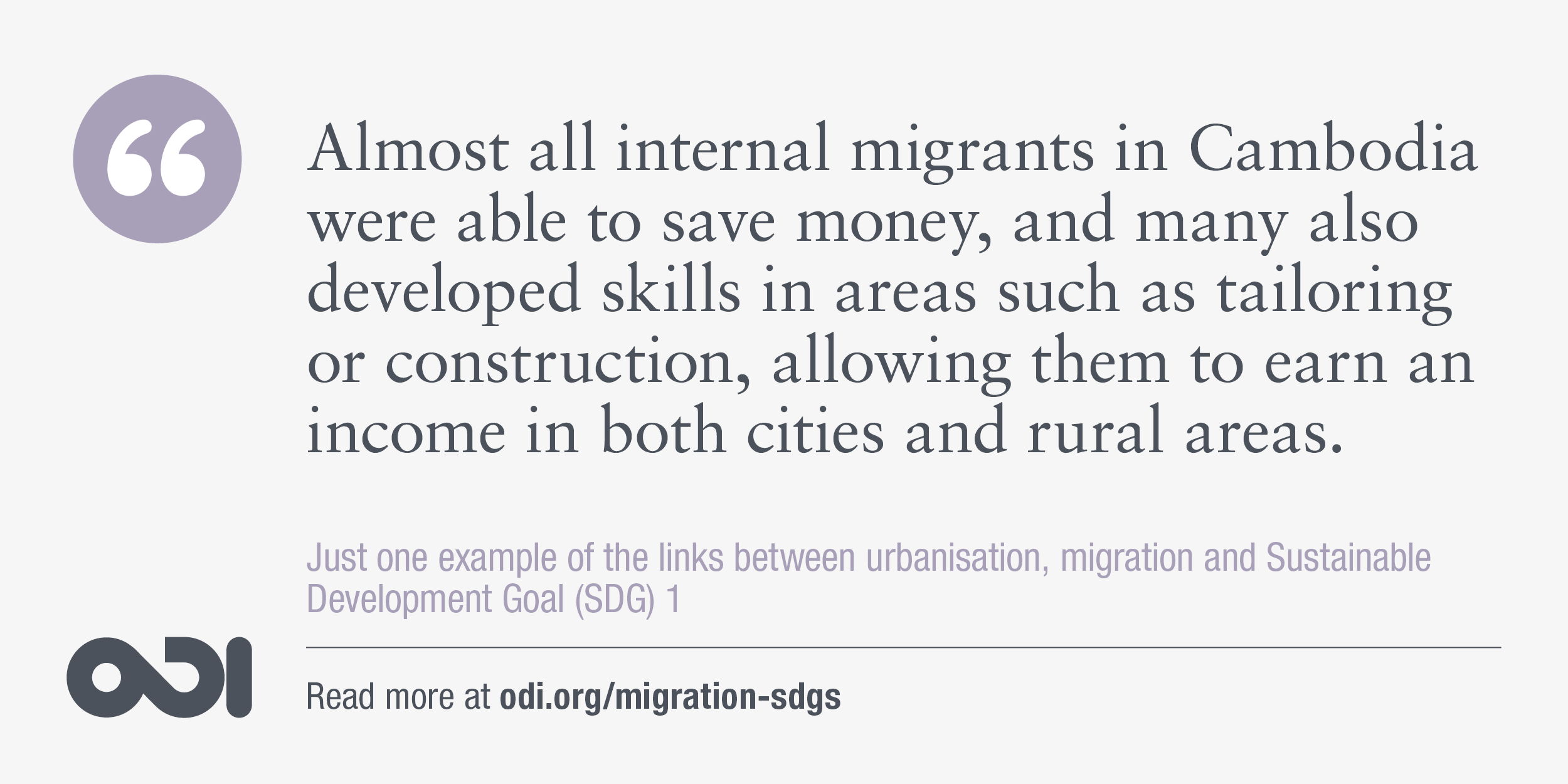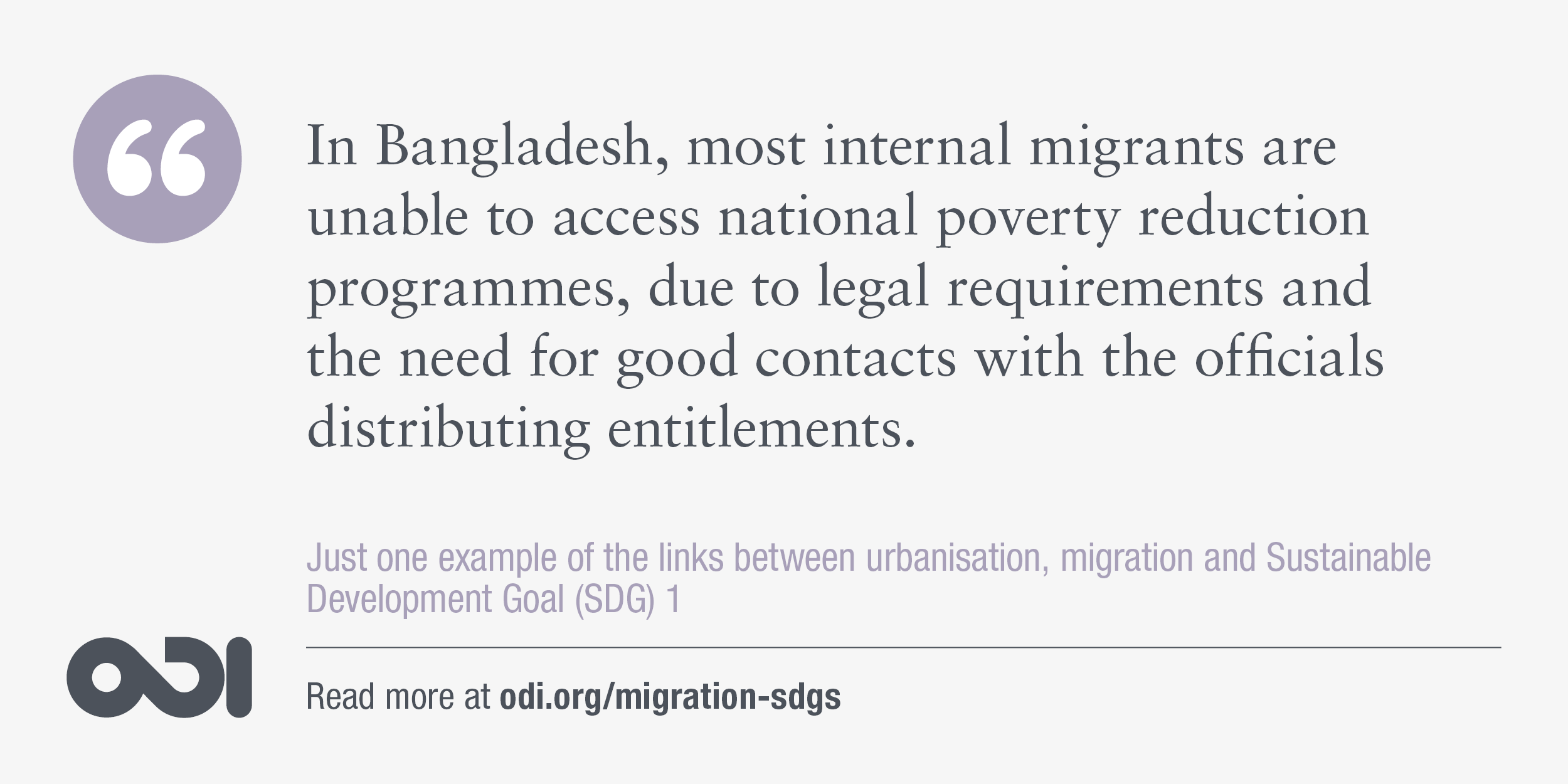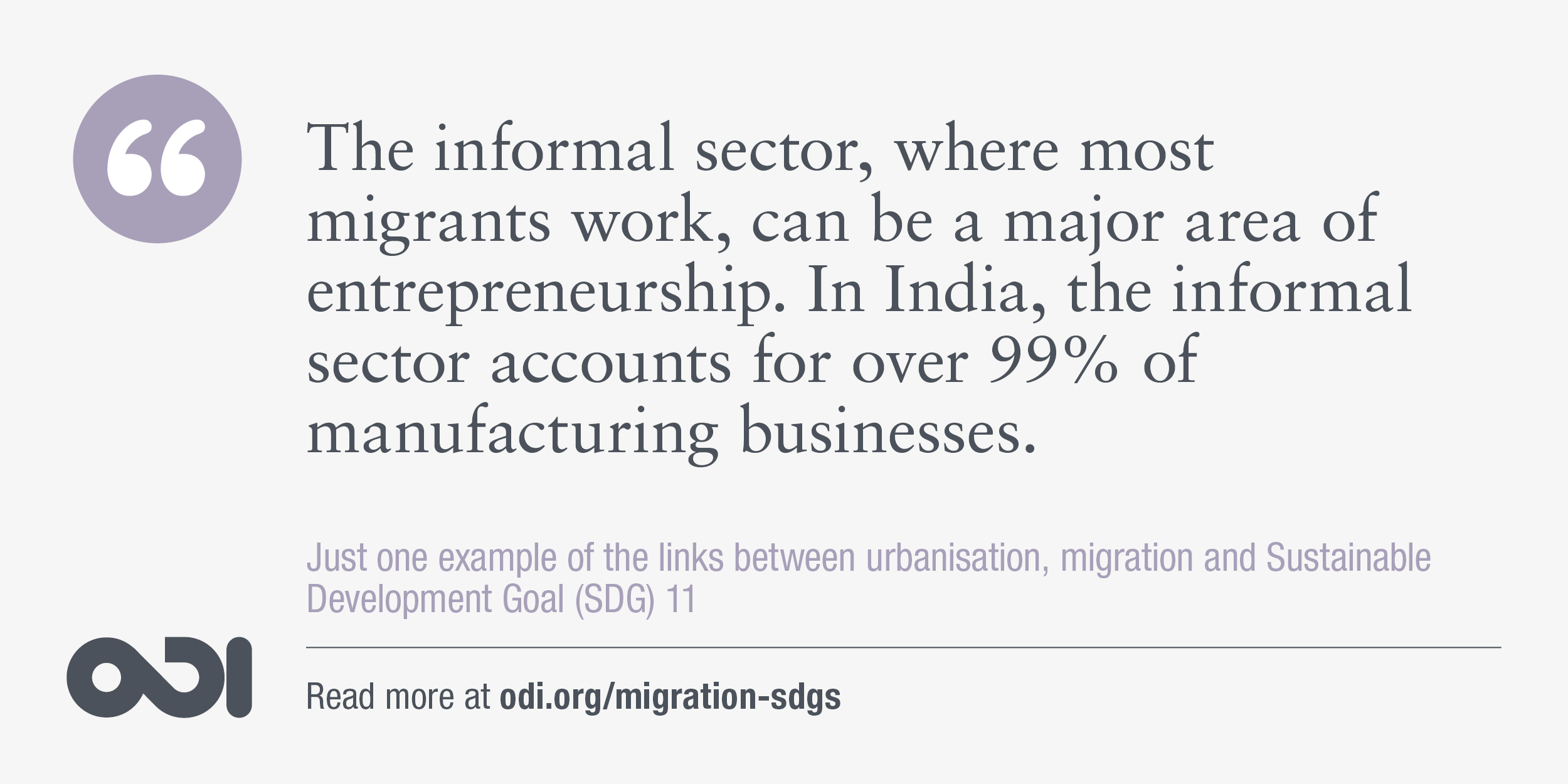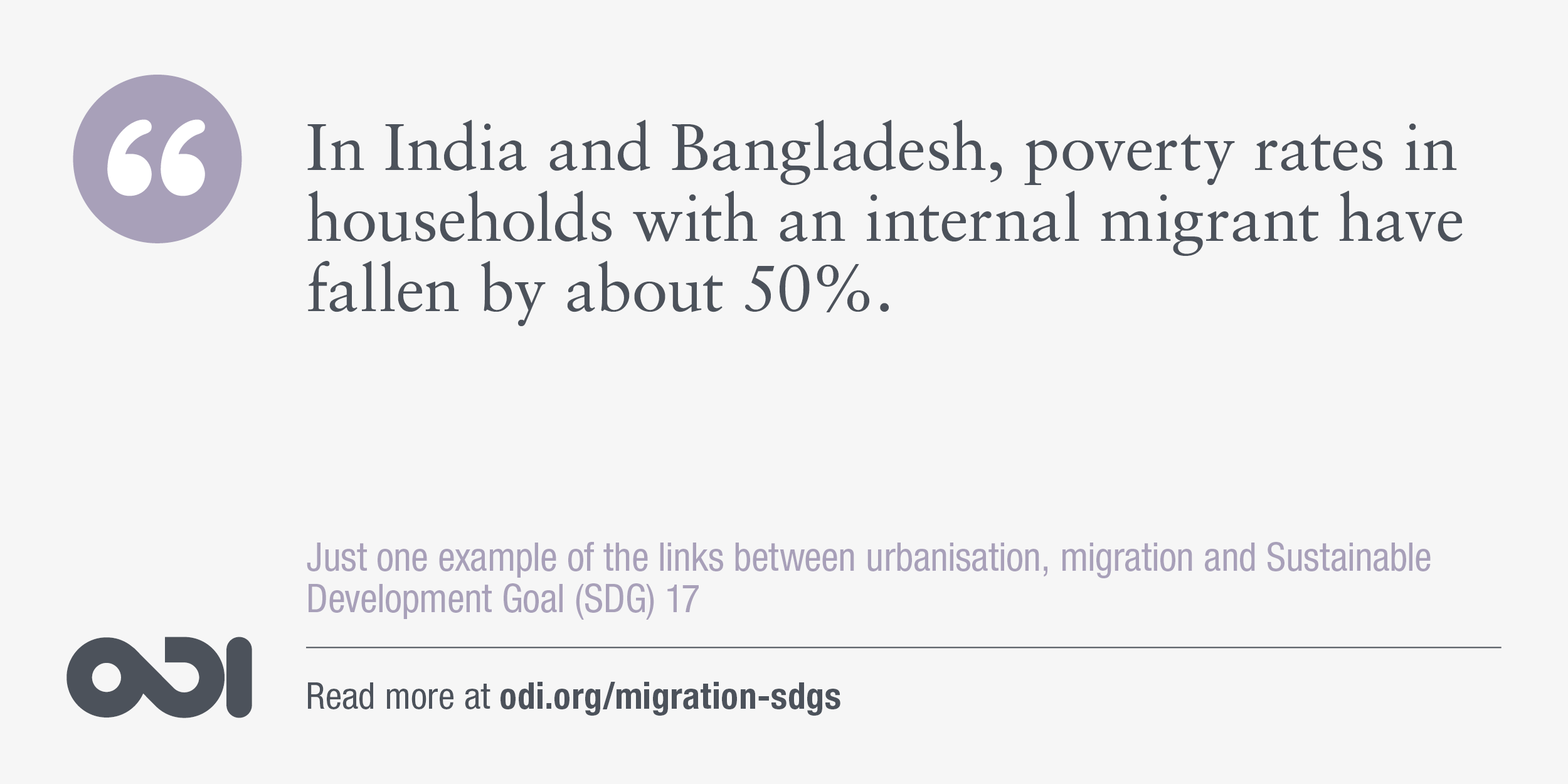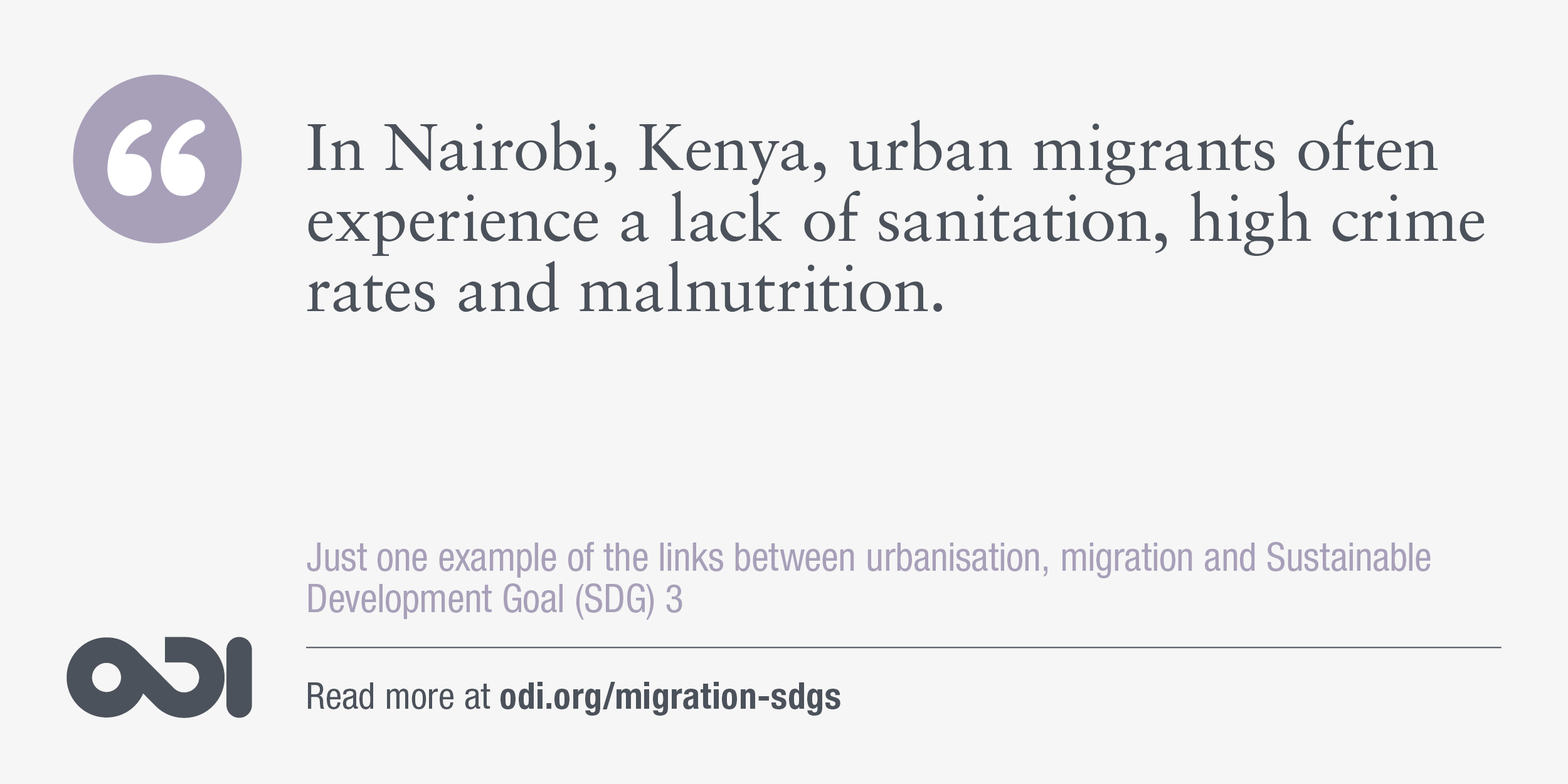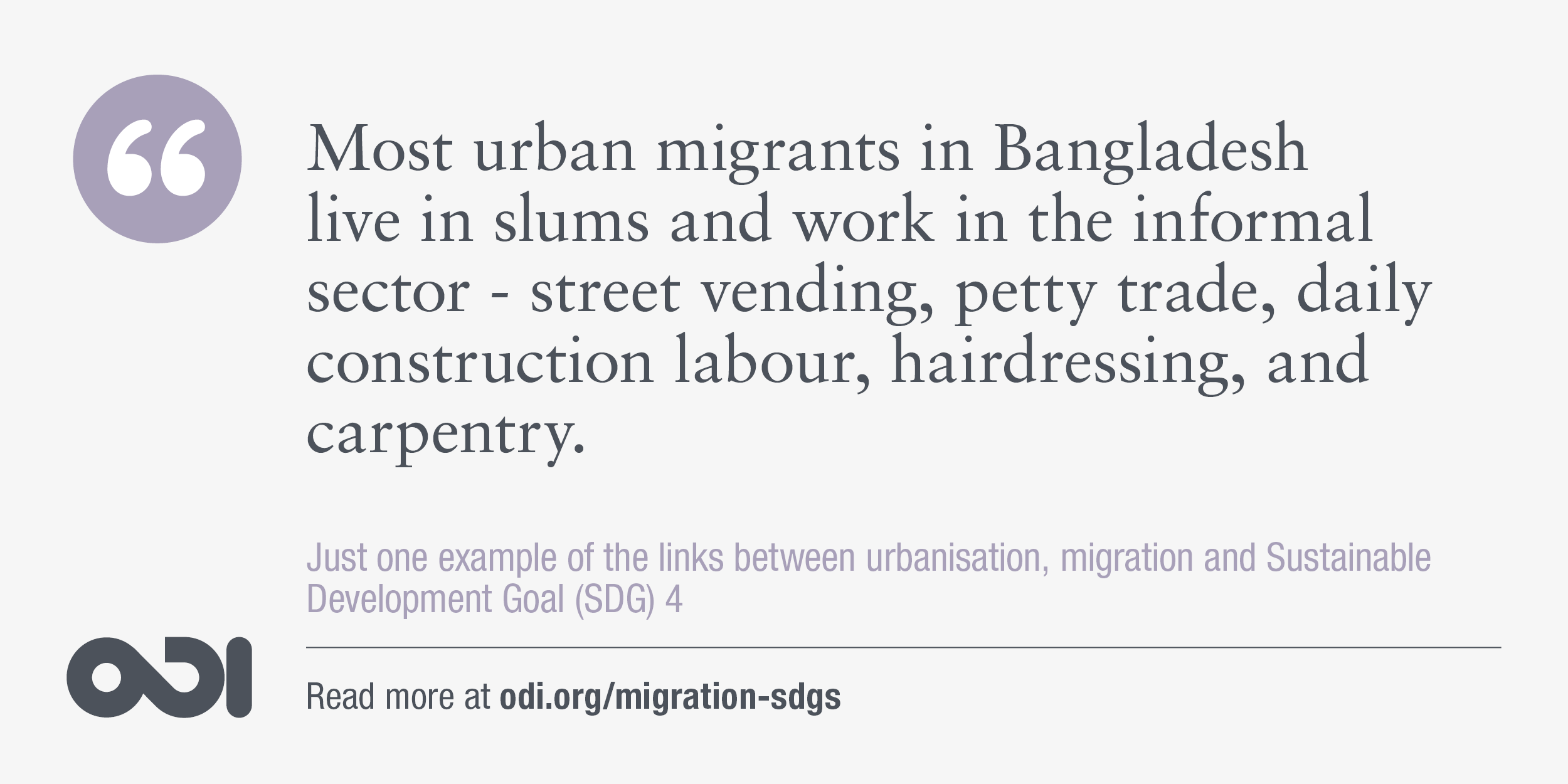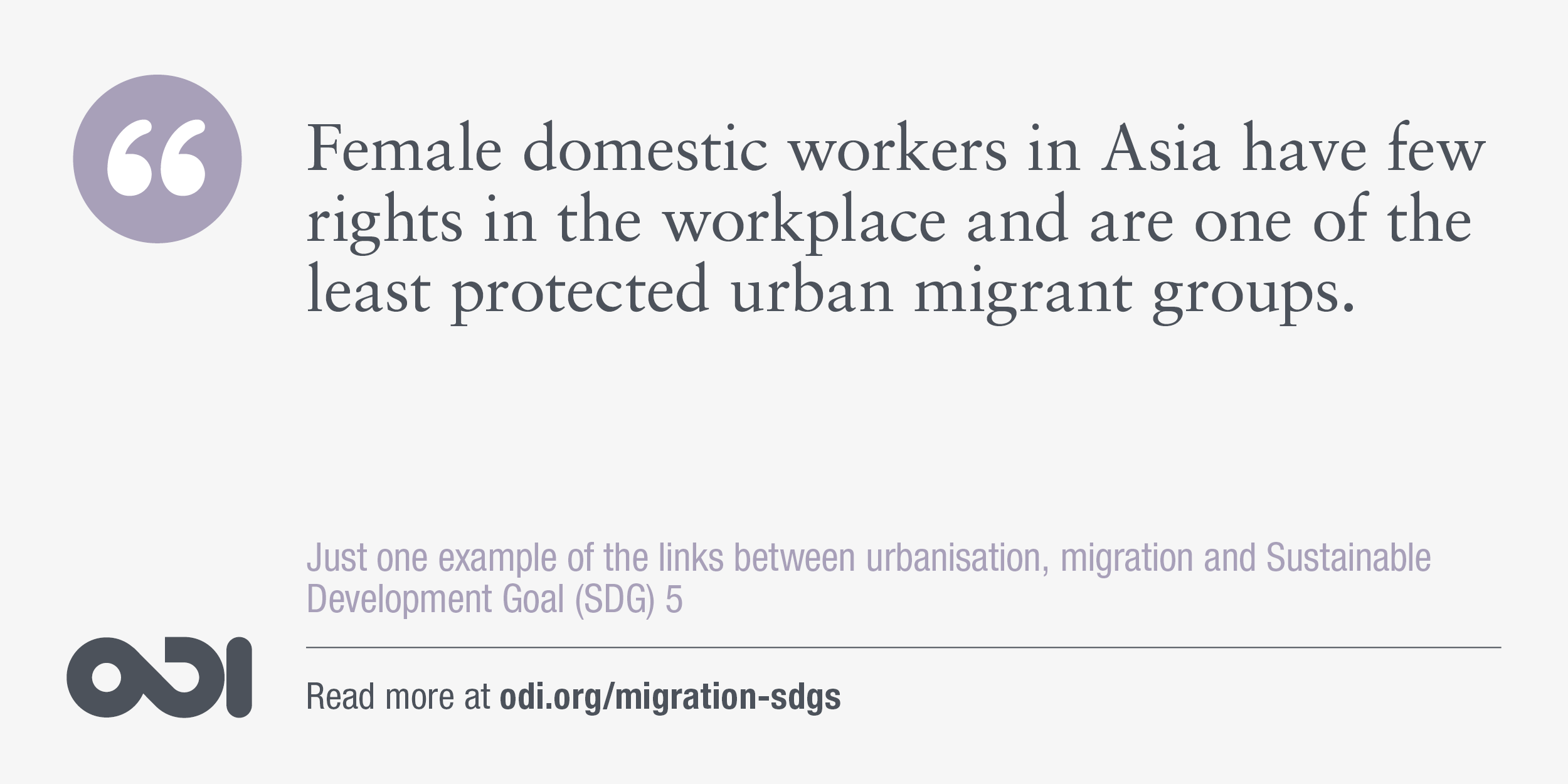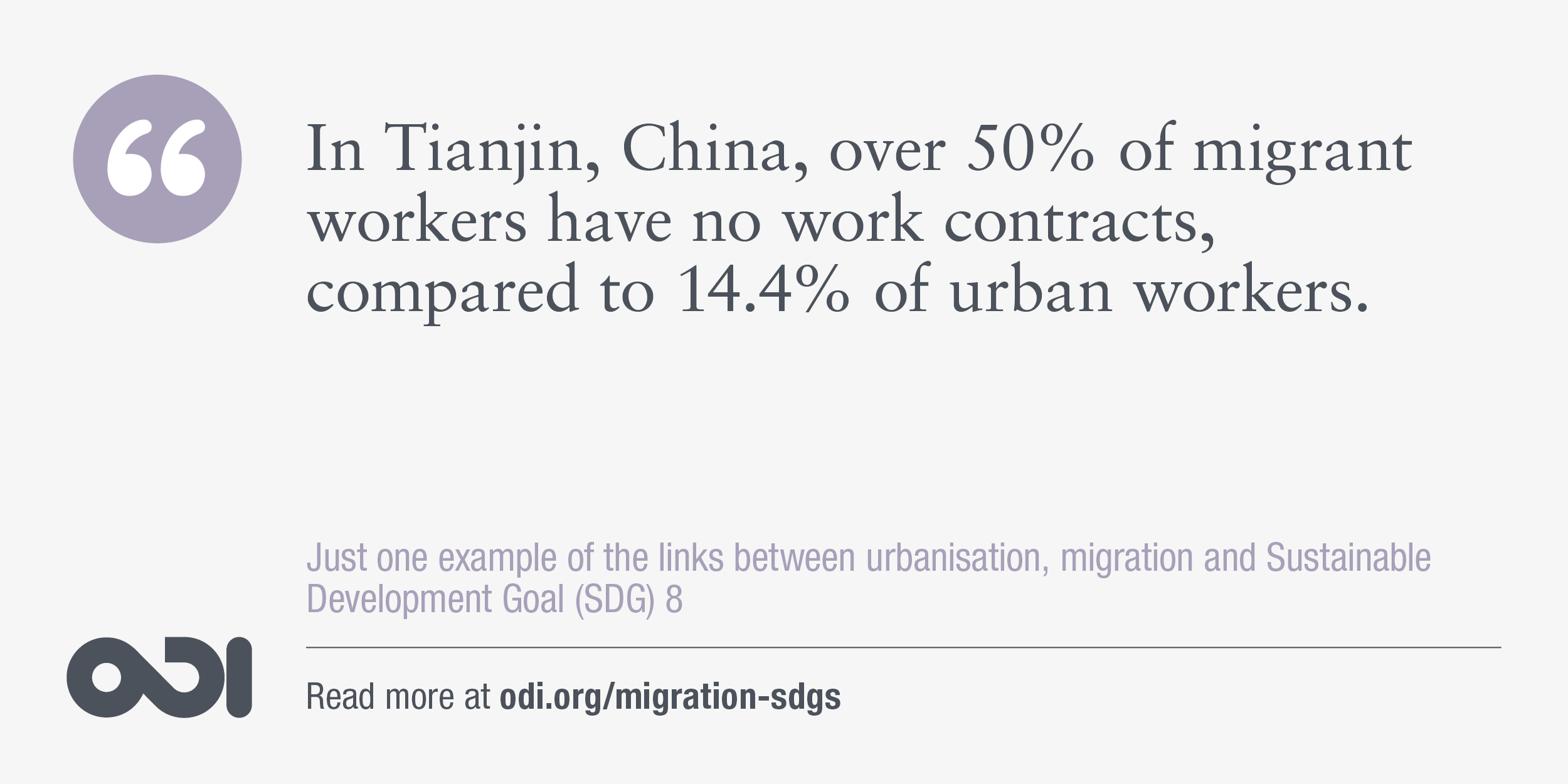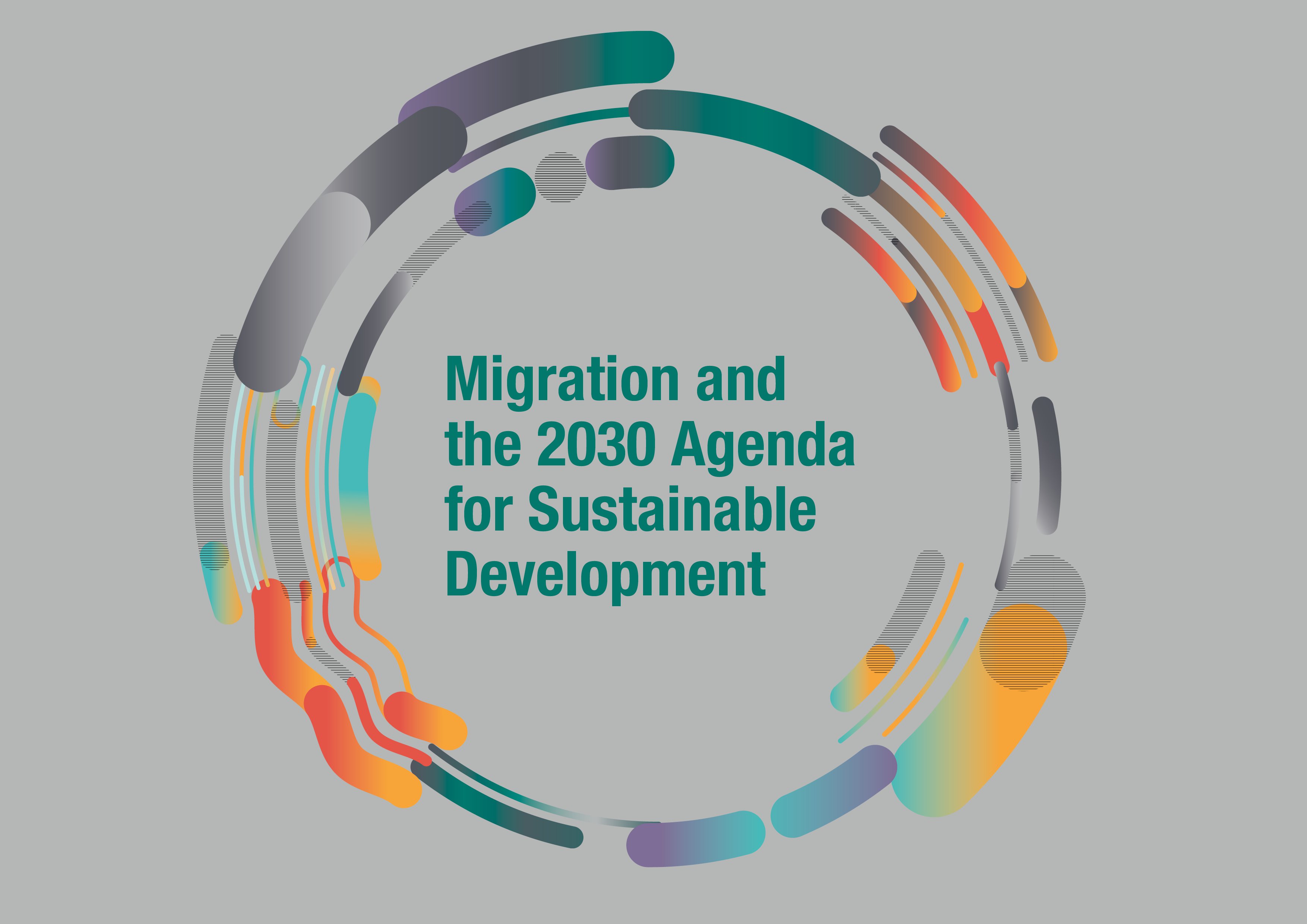This briefing presents an overview of how rural to urban migration (internal migration) impacts on the achievement of the Sustainable Development Goals (SDGs), in particular Goals 8 and 11. Despite the positive impact that internal migration can have on urban migrants, their families, and their 'host' city, urban migrants are often neglected in government policies. This briefing therefore presents a number of policy recommendations which aim to capture this potential and contribute to achieving the 2030 Agenda on Sustainable Development.
Key messages
- Internal migration and population growth are driving rapid urbanisation in many developing countries. How urbanisation is managed, and the types of jobs and services that migrants can access in the city, are crucial to achieving the Sustainable Development Goals (SDGs).
- Rural to urban migration can open up job opportunities, improve livelihoods and contribute to poverty reduction. Those who remain behind also benefit through remittances and non-financial transfers, such as improved knowledge and skills.
- Despite their potential, internal migrants are often neglected in government policies and lack access to adequate social protection or basic services.
- Poor, urban migrants often work in the informal sector which is poorly regulated in many cities.
- Policies should support decent job creation and entrepreneurship, improve work standards, and provide protection and assistance in cases of abuse to strengthen the opportunities available to new arrivals.
This is the third in a series of policy briefings on the relationship between migration and 2030 Agenda for Sustainable Development.
